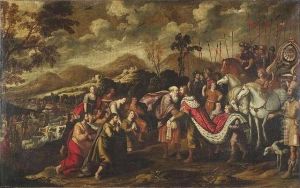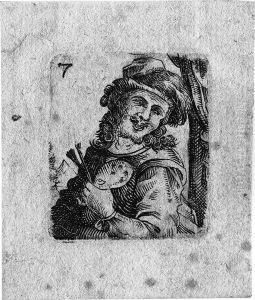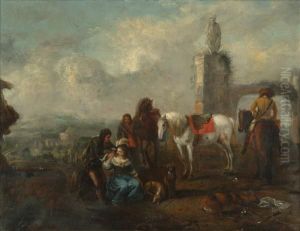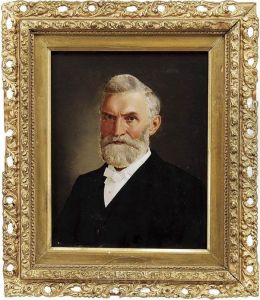Ulrich Franck Paintings
Ulrich Franck, also known as Ulrich Francken or Ulrik Franck, was a Flemish painter whose lifetime spanned the early to mid-17th century. Details about Franck's early life, including his precise birth and death dates, are scarce. He is estimated to have been born around 1600, and his death is believed to have occurred around 1660, although these dates are not confirmed and may vary depending on the source.
Franck was part of the large and well-known Francken family of artists who were active in Antwerp, but it's not clear how or if he was directly related to the more famous members like Frans Francken the Younger. Ulrich Franck's artistic career is not as well documented as those of his presumed relatives. However, he is known primarily for his genre scenes which often depicted peasant life, festivities, and interiors. His work displayed a keen observation of everyday life, with a touch of humor and moralizing elements that were common in Flemish genre painting of the period.
Although he was not as prominent as other members of the Francken family, Franck’s work did contribute to the richness of Flemish painting during the 17th century. He was part of the artistic movement that saw a shift from the religious and mythological subjects of the Renaissance to more secular themes. Franck's paintings would have catered to the tastes of the emerging middle class who sought art that reflected their own experiences and environments.
Little is known about Franck's training and personal life, and his body of work remains somewhat obscure in comparison to his contemporaries. His paintings are occasionally mistaken for or compared to those of other artists from the same period due to stylistic similarities. Today, his works are held in private collections and may sometimes be found in European museums that specialize in Flemish art. Due to the common nature of the Francken name in Flemish art, and the lack of extensive records, Ulrich Franck's contributions to art history have not been as thoroughly studied or recognized as those of some of his contemporaries.



